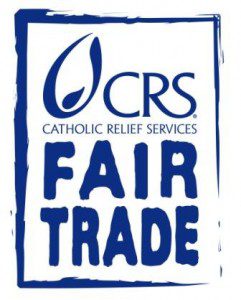“Better pricing for our baskets has helped us send our children to school. Before, we had to weave all night to pay school fees.” These are the words of Teni Ayamga, a basket weaver from Ghana whose children are able to go to school thanks to fair trade.
Teni is the beneficiary of a trade model that guarantees fair wages to disadvantaged artisans, farmers and workers around the world while providing consumers in the United States a way to shop that gives back. By purchasing fair trade products, consumers promote fair wages for impoverished workers in developing countries, and fair trade helps these small-scale farmers and artisans to survive in a very competitive international market.
“Before Trade Aid (a fair trade organization in Ghana), I had to sell in the market and didn’t consider the cost of my skill and the materials. I sold too low. With Trade Aid, I learned to consider the raw materials and workmanship, and I sell my baskets for double,” says Anyopoka Apana, who also earns a living as a basket weaver.
“Fair trade is a very tangible way of supporting farmers and artisans by investing our money in communities that promote opportunity,” says Katy Cantrell, Program Advisor for CRS Fair Trade. “The principles of fair trade really align with Catholic values and enable Catholics to shop in a way that honors those values.”
Teni’s and Anyopoka’s baskets are part of a large selection of gift items available through Catholic Relief Services’ Fair Trade program, which also includes coffee, chocolate, specialty food items and handcrafts. The items were put together by 90 small producer groups and artisans in more than 40 countries throughout the world, and are now available at http://www.crsfairtrade.org/crafts/ .
Last year, Catholic parishes held more than 3,500 fair trade crafts, coffee and chocolate sales. By holding these sales, Catholics have created a marketplace where consumers and producers both benefit, and they have brought the market to those who need it most.
CRS has also partnered with numerous coffee companies throughout the United States that are committed to the principles of fair trade. They offer a variety of quality roasts, and with every purchase designated to support CRS, consumers are contributing a percentage to CRS’ Fair Trade Fund, which benefits fair trade organizations in the United States and abroad. In Madagascar, for example, a CRS grant was used to train artisans in product design. Sharing their own skills and learning about product trends—such as a growing interest in recycled materials in the American market—prepared them to more effectively export their products.
For many Catholics, the principles of fair trade closely reflect their values, and the Catholic market for fairly-traded goods has seen continued growth in recent years. The commitment of Catholics in this country to pay a fair price for the products they enjoy, and to introduce fair trade to their parishes, helps CRS’ long-term efforts of promoting economic justice around the world.
“These days we’re all careful about how we spend our money and many Catholics, driven by their faith, choose to spend in a way that helps those who made the product build a better future for themselves,” Cantrell says.
The CRS Work of Human Hands catalog is filled with an extraordinary selection of fine jewelry, kitchen and tableware, household items, gift baskets, games, accessories, and holiday decorations. By purchasing these fair trade items, everyone wins: consumers get high-quality one-of-a-kind handcrafts and the people who created them get hope for a better future for themselves and their families. To browse the catalog or place an order, visit http://www.crsfairtrade.org/crafts/.

